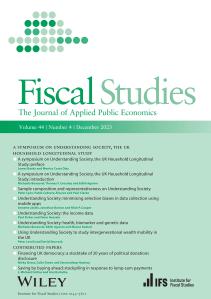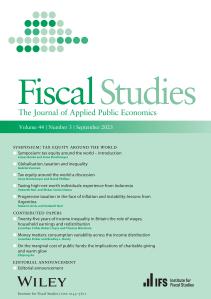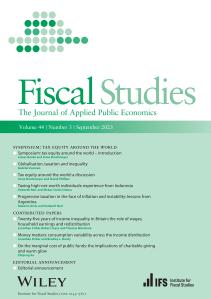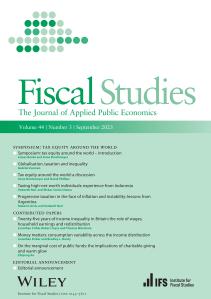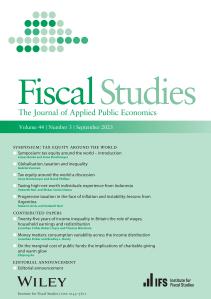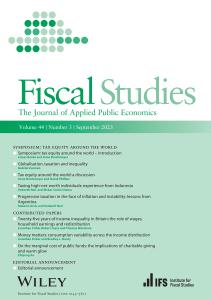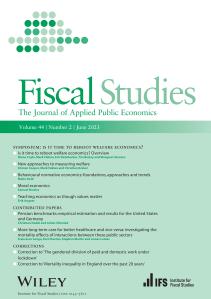Managing Editors
James Banks, University of Manchester, UK; Institute for Fiscal Studies, UK
Pierre Cahuc, Sciences Po, France
Monica Costa Dias, University of Bristol, UK; Institute for Fiscal Studies, UK
Matthias Parey, University of Surrey, UK
Kimberley Scharf, University of Birmingham, UK
James P. Ziliak, University of Kentucky, USA
Advisory Board
Sir Richard Blundell (Chair), University College London, UK
Joel Slemrod, University of Michigan, USA
Associate Editors
Stuart Adam, Institute for Fiscal Studies, UK
Antoine Bozio, Paris School of Economics, France
Arun Advani, University of Warwick UK; Institute for Fiscal Studies, UK
Jonathan Colmer, University of Virginia, USA
Richard Disney, University of Sussex, UK
Eric French, University of Cambridge, UK; Institute for Fiscal Studies, UK
Clemens Fuest, Ifo Institute and University of Munich, Germany
Egbert Jongen, CPB Netherlands Bureau for Economic Policy Analysis; Leiden University, Netherlands
Sonya Krutikova, Institute for Fiscal Studies, UK
Peter Levell, Institute for Fiscal Studies, UK
Eric Ohrn, Grinnell College, USA
Johannes Spinnewijn, London School of Economics, UK
Emma Tominey, University of York, UK
Marcos Vera-Hernández, University College London, UK; Institute for Fiscal Studies, UK
Mazhar Waseem, University of Manchester, UK
Production Editors
Rachel Lumpkin
Judith Payne, Institute for Fiscal Studies, UK

